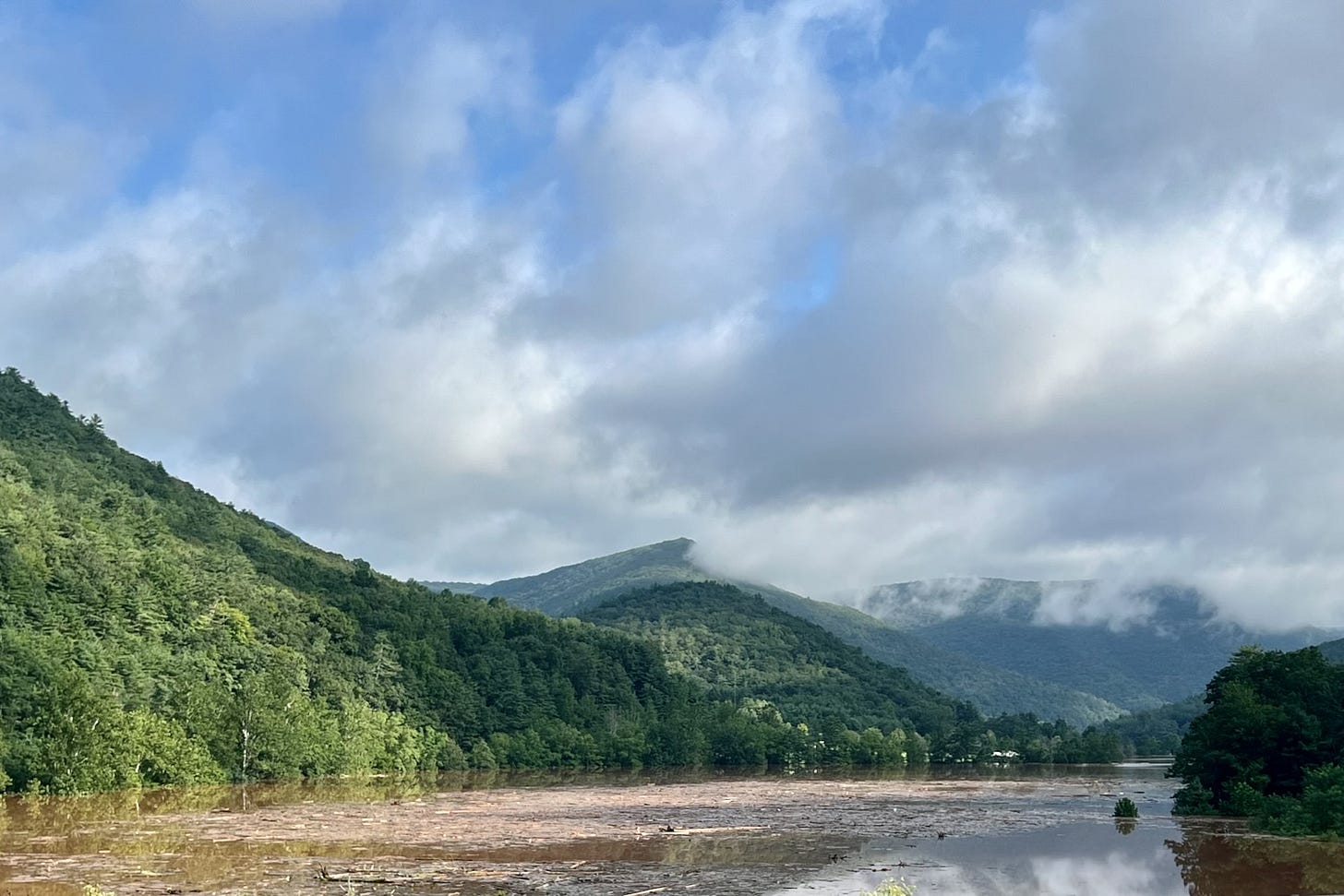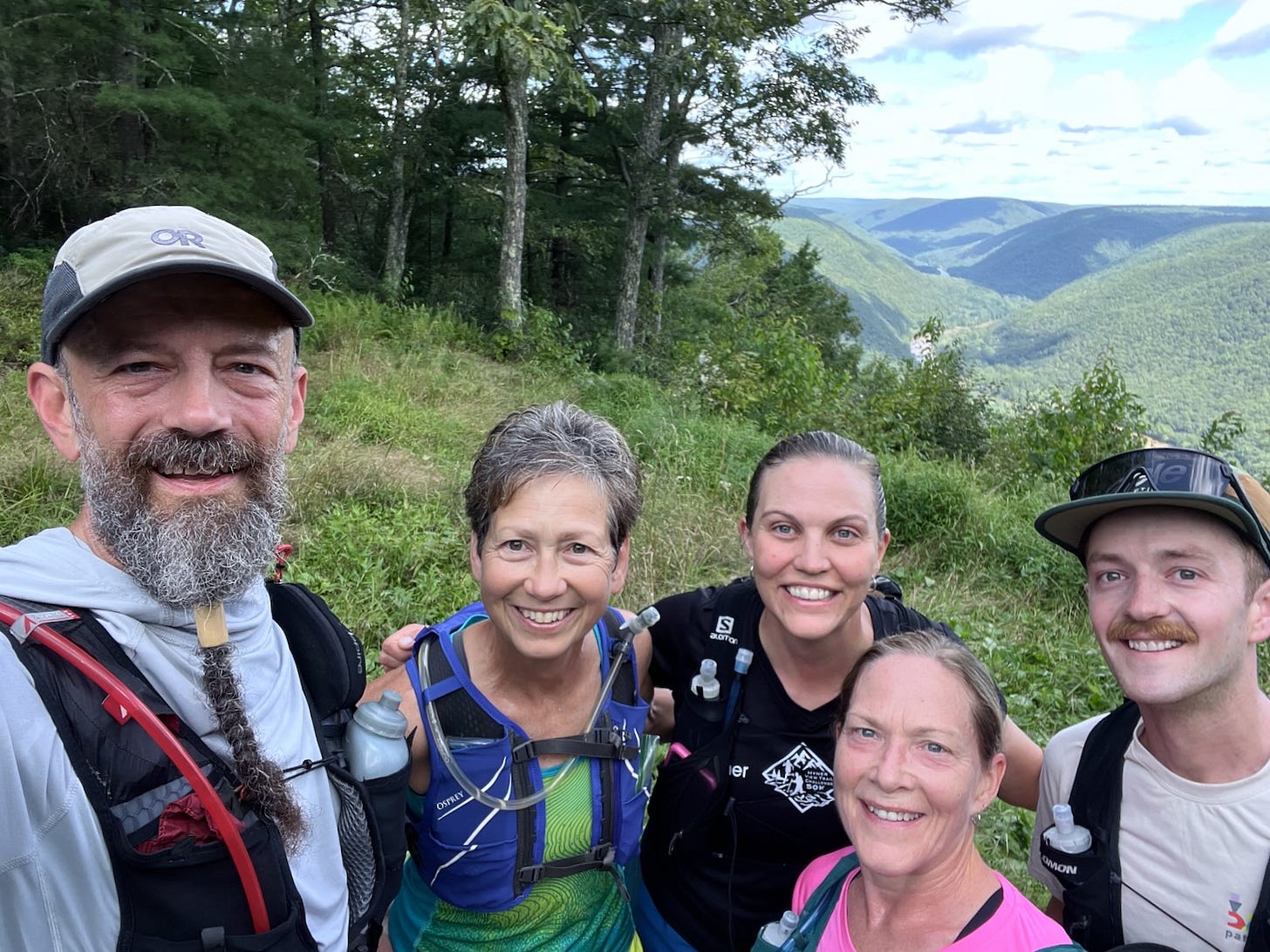Not fare well,
But fare forward, voyagers.
—T.S. Eliot, "Four Quartets"
I waited to make this post, to let the emotions of race weekend settle and to absorb the reality that a cancelled 100-mile race is not much in the larger scheme of things. There are far, far worse things happening in the world.
It felt tragic in the moment, but we will all be just fine.
In the moment, at 4:30 Saturday morning as we arrived at the relocated start line and heard the news, it felt like a cruel joke and an impossibility.
Sadly it was quite real, and nothing — not the extraordinary efforts of the race team to find a way to make the race happen, and not the collective will (or wishful thinking) of the hundreds of ardent individuals involved — could change the reality that the water was still rising.
The race team continued the pattern I described in my last post (a challenge arises, that challenge is addressed, and the race moves forward). But through Friday night into Saturday morning, the rate of challenge accelerated — more submerged aid stations, more road closures, bridges out, local communities evacuating... and the creeks had not yet crested.
When the early-morning disaster declarations came in, there were no more options. The first responders were needed elsewhere, and there was no responsible way to continue this race.
The emotions were intense. A 100-mile race is not something you just do, and an event like this one is not something that just happens. For runners it’s the culmination of months, sometimes years, of focus. For organizers, and their devoted army of volunteers, it’s a full year’s worth of labor focused on a single weekend. For all, it’s an immense and intensive investment of time and energy and emotion.
So yes, big emotions… bewilderment, disappointment, frustration, sadness. I saw some tears. What I didn’t see was anger, or acrimony, or anything remotely defeatist. People lingered at the start line drinking coffee, chatting softly, laughing nervously, coming to terms with this new reality. And drawing solace from the crowd — this was absolutely not what anyone wanted, but they were together in the experience of it.
Acceptance was not easy, but it was quick, and as the sun rose, emotions changed. “Ok, this is how it is now…” And as is our way, we emerged into positive action, into forward movement. Aid station supplies were diverted to evacuation sites, assistance was offered, new plans were made.
Saturday was a paradox. The creeks were still rising, the chocolate-brown water of the flood was spreading. But out in the mountains, the runs that feed the creeks were already returning to normal. The post-storm weather was prime for running, and many of us ventured out on smaller, consolation adventures.
Running with friends on these pristine trails under clear blue skies on this mild and bright weekend was a bittersweet tease, a glimpse of what might have been. But it was also a celebration of an elemental part of our sport that is always there, race or no race. The camaraderie of exploration and shared challenge is more important than any formal event.
So resilience became the theme of the weekend.
Saturday evening there was a picnic, and some of the natural leaders within the group helped turn the melancholy into something joyful. And Sunday night we walked up to the Little Pine dam, out onto the breastwork overlooking the muddy water and floating debris. We sat on blankets in the grass and looked up into the moonless darkness, watching for the Perseids against the backdrop of constellations and the misty faintness of the Milky Way.
As the occasional meteor streaked across the sky, as satellites cut their long smooth arcs of light, as the dew settled around us, I realized that there was no place I’d rather have been just then, no other people I’d rather have been there with. And while this was clearly not what we’d made this trip for, in a broader sense, it was exactly why we’d come — for connection: with ourselves, with each other, with nature and the wider world, and with our sense of both purpose and wonder within that world.
Forward, voyagers!








Side note: Renee has decided to redirect all that Eastern States training to the Mogollon Monster, so we're off to Arizona next month (It's a worthy alternative — I ran it as my second hundred back in 2016. Not quite as much climbing and the trails are a bit smoother, but it's a tough race in a beautiful place, and she's going to do well there.)
So sorry about the cancelation—I bet it was a roller coaster of emotions and highly stressful. Your story reminds me of other heartbreaking cancelations, like 2008 Western States due to fire, but everyone had traveled there already. I bet next year will be a big celebration!